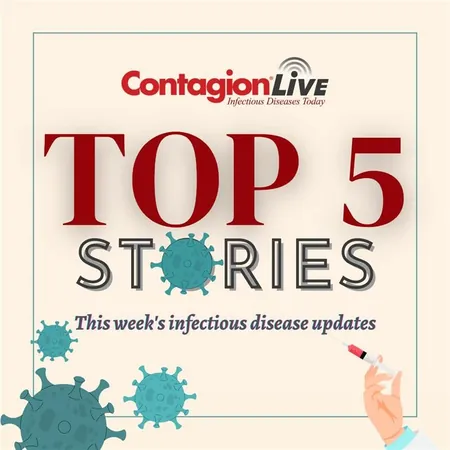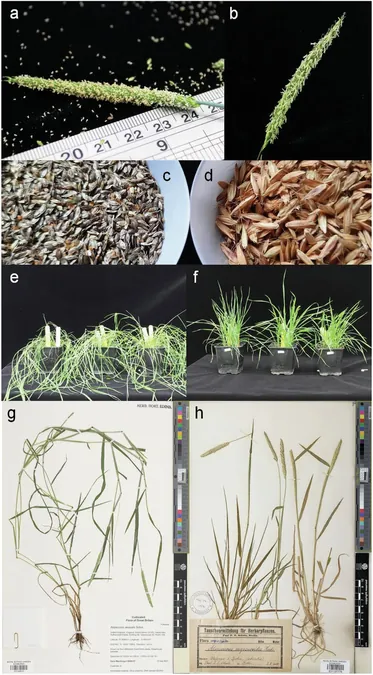
Top 5 Infectious Disease News Stories: Week of January 4-10, 2025
2025-01-11
Author: Nur
1. Norovirus Cases Surge Amid Peak Season in the US
The United States is currently facing a significant rise in norovirus cases, with over 22% of tests returning positive as of late December 2024. This marks a worrying increase compared to last year, with the CDC reporting 495 outbreaks during the 2024-2025 season—up from 363 in the same timeframe last year. In an alarming development linked to contaminated oysters, the FDA issued a safety alert on January 2, 2025. Consumers and businesses in Washington and Oregon are advised to avoid oysters harvested from Hammersley Inlet between December 2 and 17, 2024, which may harbor the virus responsible for gastrointestinal illnesses. Health experts are stressing the importance of vigilance, particularly during the peak season for norovirus outbreaks, typically occurring in late fall and winter.
2. First US Death from Severe Avian Influenza Case
A tragic milestone has been reached as Louisiana health officials confirmed the first death in the US linked to the H5N1 avian influenza virus on January 7, 2025. The deceased, an elderly individual with preexisting health issues, contracted the virus through contact with backyard poultry and wild birds. Importantly, no additional cases or signs of human-to-human transmission have been reported. The patient was infected with the D11 genotype of the H5N1 virus, known for causing severe illness. This highlights the ongoing threat posed by avian influenza and underscores the need for monitoring and preventive measures, especially among vulnerable populations.
3. Innovative Bacterial Strategies Uncovered for Fighting Viruses
Groundbreaking research published in Nature has unveiled fascinating insights into how bacteria combat their rivals by exploiting natural products to expose them to viruses. Led by Joseph Gerdt from Indiana University, the study reveals that Streptomyces bacteria secrete coelichelin, a compound that binds to iron, thereby compromising regulatory processes in Bacillus subtilis. This increases the latter's susceptibility to viral infection by bacteriophages. This discovery not only improves our understanding of microbial interactions but also paves the way for innovative phage therapy applications, particularly in addressing antibiotic-resistant infections. Researchers are now investigating the potential ramifications of these interactions within the human microbiome.
4. FDA Issues Warning on Guillain-Barré Syndrome Risks Associated with RSV Vaccines
In a significant health advisory, the FDA has mandated updated labeling for the RSV vaccines Abrysvo and Arexvy, following findings that indicated an increased risk of Guillain-Barré Syndrome (GBS) in older adults. Data from clinical trials and postmarketing studies revealed approximately nine excess cases of GBS per million doses for Abrysvo and seven for Arexvy among seniors aged 65 and older. While concern surrounding GBS following vaccination has grown, the evidence thus far is not sufficient to establish a direct causal link. GBS is a rare but serious neurological disorder, and ongoing surveillance of vaccine safety will be crucial.
5. Long COVID Symptoms Dwindle Among Healthcare Workers
A recent study conducted in Switzerland has shown promising results regarding long COVID among healthcare workers. Analysis of 1,704 HCWs from March 2021 to October 2023 revealed that while the burden of post-acute sequelae of SARS-CoV-2 infection (PASC) has diminished significantly, about 1% of respondents still experience substantial limitations in daily activities. By October 2023, 30.7% reported at least one symptom of PASC, with a notable correlation to those who had contracted the original SARS-CoV-2 strain. Despite the overall decrease in long COVID symptoms, the ongoing challenges faced by a minority of affected HCWs highlight the need for continued support and research into the long-term effects of COVID-19.






 Brasil (PT)
Brasil (PT)
 Canada (EN)
Canada (EN)
 Chile (ES)
Chile (ES)
 Česko (CS)
Česko (CS)
 대한민국 (KO)
대한민국 (KO)
 España (ES)
España (ES)
 France (FR)
France (FR)
 Hong Kong (EN)
Hong Kong (EN)
 Italia (IT)
Italia (IT)
 日本 (JA)
日本 (JA)
 Magyarország (HU)
Magyarország (HU)
 Norge (NO)
Norge (NO)
 Polska (PL)
Polska (PL)
 Schweiz (DE)
Schweiz (DE)
 Singapore (EN)
Singapore (EN)
 Sverige (SV)
Sverige (SV)
 Suomi (FI)
Suomi (FI)
 Türkiye (TR)
Türkiye (TR)